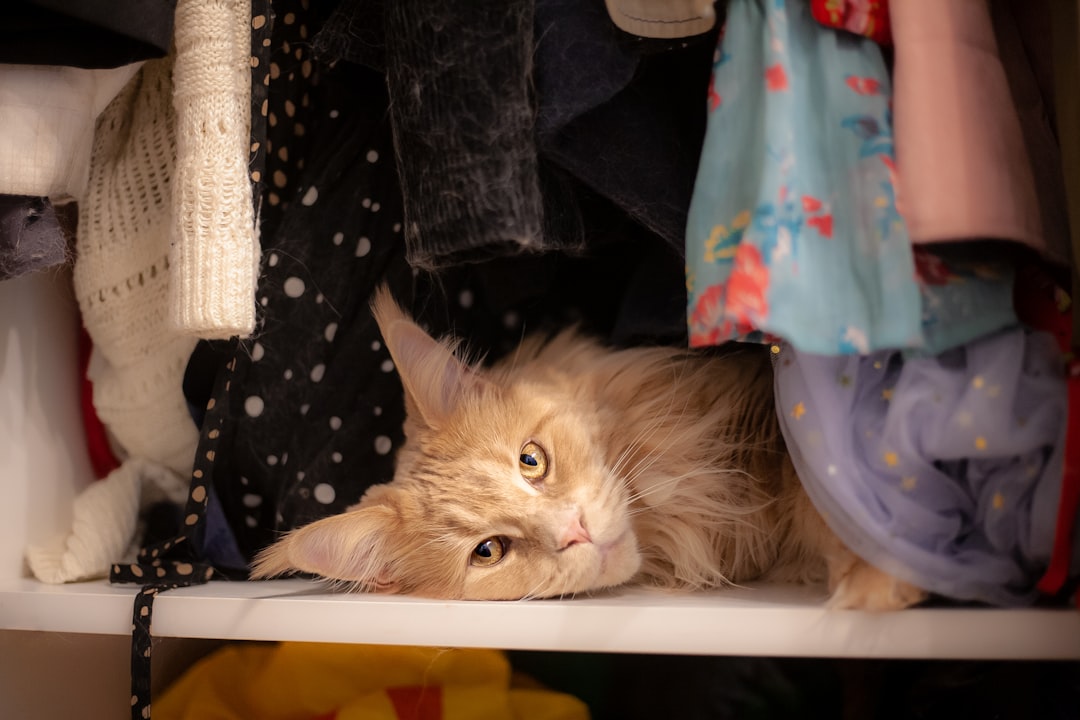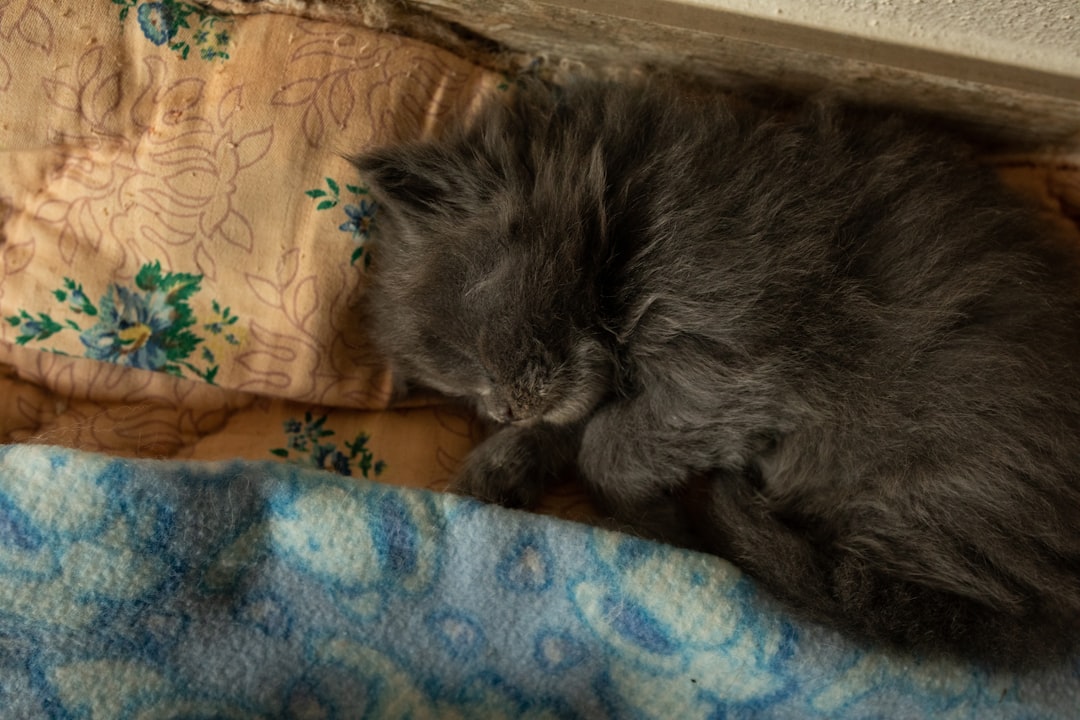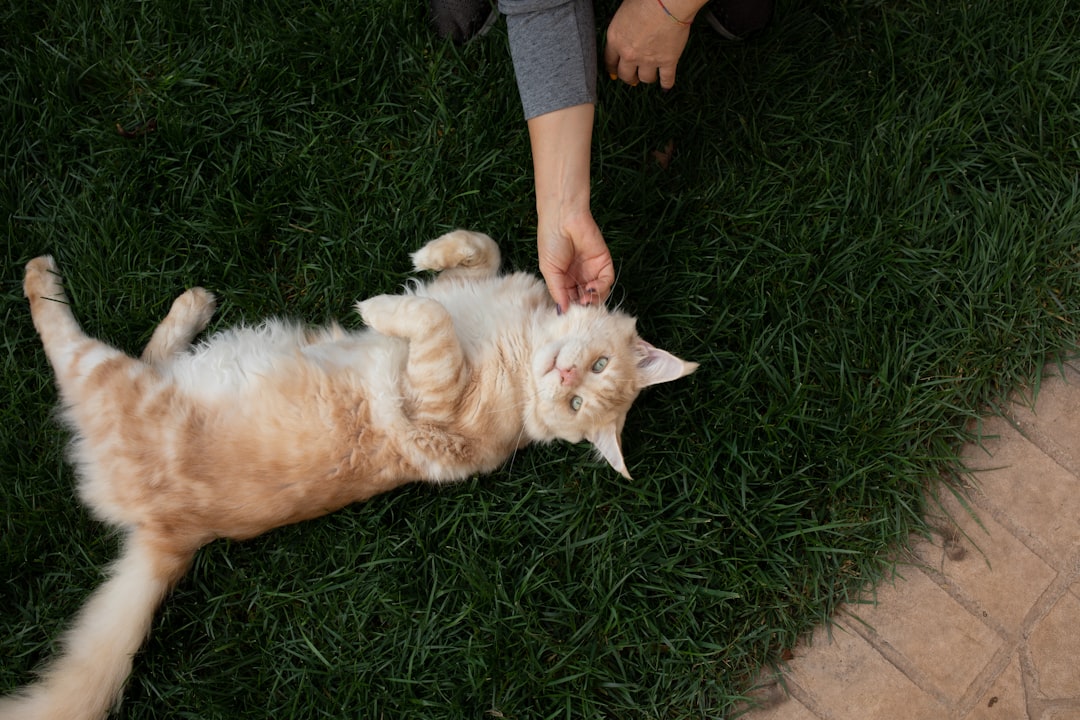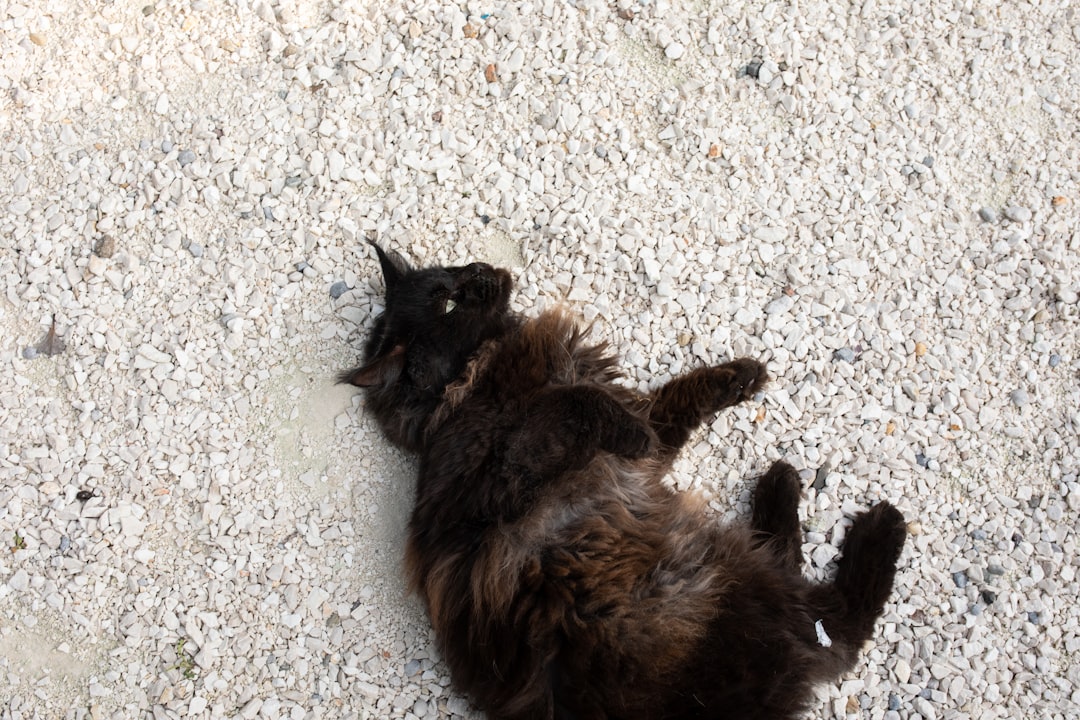Maine Coon Adoption 7 Key Factors to Consider Before Bringing Home This Gentle Giant
Maine Coon Adoption 7 Key Factors to Consider Before Bringing Home This Gentle Giant - Space requirements for an active and curious breed
Maine Coons, known for their gentle nature and playful personalities, are also quite active and curious. As a large breed, they need space to move around and explore. Ideally, 1000 square feet is considered the sweet spot, offering ample room for exercise, play, and exploring their surroundings. While Maine Coons can adapt to smaller apartments, regular playtime and mental stimulation become even more crucial. Providing a designated play area with climbing structures and scratching posts can enrich their environment, allowing them to express their natural instincts. Remember, Maine Coons thrive on both physical space and human interaction.
Maine Coons are substantial cats, and their physical space needs reflect that. While some sources suggest a minimum of 20 square feet, that feels a bit stingy, given their playful nature and natural climbing instinct. A truly happy Maine Coon needs more space than that, ideally around 1000 square feet. That kind of space allows for them to explore, climb, and express their active personalities. Imagine the space as a playground for them, a place where they can be stimulated, both physically and mentally.
Think about what a healthy lifestyle for a Maine Coon might look like: at least 20 to 30 minutes of dedicated play time each day. This isn't just a suggestion, but a vital need to keep them healthy. But that also requires space. I'm thinking of tall cat trees, scratching posts, and a dedicated play area, so they can climb and pounce.
A few things are worth considering: their social nature, their love of water, and their intelligence. Maine Coons often thrive in environments where they can interact with family members or other pets, meaning a space conducive to those interactions. That could include adding a cat-safe water feature or even incorporating a designated area for water play. You might even consider offering them puzzle toys or enrichment activities that challenge their minds, requiring yet more space.
Now, about their physical health. I’ve researched the breed quite a bit, and their robust physique, while wonderful, means that they are prone to certain health issues if they are not active. Providing the space to live actively is crucial to their well-being. This, I believe, is not just a matter of size but also a matter of safety. A Maine Coon, confined to a small space, will exhibit signs of stress or boredom, which will definitely affect their health. What we are looking at is a long-term commitment, and we want to provide a safe environment where they can be their playful selves.
Maine Coon Adoption 7 Key Factors to Consider Before Bringing Home This Gentle Giant - Creating a safe and stimulating home environment
Creating a safe and stimulating home environment for a Maine Coon is essential for their well-being. Before you welcome your furry friend, make sure your house is secure for a kitten. This means removing any potential hazards, like loose electrical cords or toxic plants, to prevent accidents. Remember, Maine Coons are curious and love to explore, so ensure they have a variety of engaging activities. This might include scratching posts, climbing structures, and an assortment of toys that allow them to express their natural instincts. Consider creating cozy areas where your Maine Coon can relax and feel safe, particularly during their initial adjustment period. A well-rounded home that emphasizes both safety and mental stimulation will contribute to your Maine Coon's happiness and health.
Creating a safe and stimulating home environment for your Maine Coon is more than just giving them enough space. It's about crafting a world that meets their physical and mental needs, making them feel safe and engaged.
While large breeds like Maine Coons benefit from ample square footage, it's not just about the size, but how you utilize the space. Think verticality: Cats are natural climbers, so providing shelves, cat trees, or even dedicated climbing structures caters to their instinct and helps them stay active. Don't underestimate the impact of color psychology, either. Warmer colors can stimulate activity, while cooler tones can create a calming environment. Choose your decor with your cat’s mood in mind!
We need to think about the richness of their environment. A mix of textures, from soft fabrics to sisal for scratching, can enrich their experience. It's about creating sensory stimulation, a place that feels diverse and engaging. Even the type of flooring matters. Maine Coons may prefer soft surfaces for comfort, so carpets or cushioned mats might be a good choice.
Consider light exposure, too. Cats need sunlight to regulate their internal clocks, influencing their activity levels. Provide perches near windows, allowing them to soak in the natural light. Don’t forget about sound: loud noises can stress cats. Maybe soundproof some areas or provide quiet spots for them to retreat to when things get noisy.
We also need to address air quality. Maine Coons, with their thick fur, might be susceptible to allergens. An air purifier can significantly reduce pollutants, creating a healthier environment for your feline friend.
Don’t just give your Maine Coon space, make it an engaging space. Designate specific play areas with various types of toys, from puzzle feeders to interactive options. This will not only encourage physical activity but also provide mental stimulation, reducing boredom and potentially destructive behaviors.
Temperature regulation is important too. Maine Coons, despite their thick fur, can be sensitive to extreme temperatures. Keeping your home comfortable is vital for their overall well-being.
Last but not least, remember that cats thrive on routine. Set regular schedules for feeding, playtime, and interaction, establishing a sense of security and stability for your Maine Coon. It's about creating a haven, where they can feel safe and flourish, allowing their playful nature to shine through.
Maine Coon Adoption 7 Key Factors to Consider Before Bringing Home This Gentle Giant - Health history and genetic screening importance
When bringing a Maine Coon home, it's vital to understand their health history and consider genetic screening. Maine Coons are prone to certain health issues, including heart problems and hip dysplasia, which can be passed down through generations. Getting a comprehensive health screening can help detect these conditions early, leading to better care and a longer, healthier life for your cat. Checking a Maine Coon's pedigree, which details their ancestry, can also offer insights into their genetic makeup and potential health risks. By being informed about these factors, you can make more conscious decisions about your adoption, potentially preventing health problems and ensuring your Maine Coon enjoys a happy and healthy life.
Maine Coons, with their distinctive appearance and gentle nature, are an increasingly popular breed. However, their unique genetics also mean they can be prone to certain health issues, making it crucial to understand their health history before adopting one.
This is where genetic screening comes in. It can reveal potential predispositions to hereditary conditions, like hypertrophic cardiomyopathy (HCM), a serious heart condition. Early detection can be critical for managing these conditions, potentially extending the cat’s lifespan. But, it’s more than just health problems. Genetic screening can also reveal traits that might impact their behavior and temperament, offering a more comprehensive understanding of the individual cat.
There’s a good reason why studying a Maine Coon's pedigree is essential. It offers insights into their genetic history and potential health risks. While Maine Coons are known for their robust physique, they can be prone to certain inherited issues like hip dysplasia, a condition affecting the hip joint.
Knowing about these potential issues can be valuable. It allows for proactive health management, potentially reducing the risk of complications later in life. It’s also important to remember that the impact of genetic predispositions can be influenced by the environment and care the cat receives. For example, a Maine Coon predisposed to dental disease could benefit from proactive dental care, potentially preventing serious problems.
Some research even suggests that cats with a known health history are less likely to require emergency veterinary care, underscoring the value of getting as much information as possible before adopting. This is where responsible breeders can play a crucial role, prioritizing health history and genetic screening to ensure the well-being of their animals and promoting healthier breeding practices for the breed as a whole.
Maine Coon Adoption 7 Key Factors to Consider Before Bringing Home This Gentle Giant - Observing kitten behavior and temperament
Before bringing home a Maine Coon kitten, take time to understand their unique personalities. Maine Coons are known for their gentle and affectionate nature, and you'll often see this playful side in kittens, alongside a robust curiosity. They're intelligent, making them easy to train, but early socialization is crucial for developing a well-adjusted adult cat. While these kittens thrive on interaction with people and other pets, it's equally important to provide a stimulating environment with toys and climbing opportunities to channel their boundless energy. Recognizing these behaviors early on will help you establish strong bonds and ensure their emotional well-being as they mature.
Maine Coons are renowned for their gentle nature, but understanding the behavior of a Maine Coon kitten is crucial for fostering a strong bond and ensuring a well-adjusted cat. Observing their development is akin to studying a complex biological system, revealing fascinating insights into their behavior and temperament.
While their vocalizations are often perceived as meows, each sound has a specific meaning, serving as a communication tool for their littermates, particularly during playful interactions. These interactions are essential for building social bonds and honing their innate hunting skills.
As kittens progress through their developmental stages, from the neonatal phase to juvenile, they exhibit a remarkable transformation in their behavior. Their curiosity and playfulness increase dramatically, serving as key tools for exploring their environment and refining their social skills.
It's fascinating to note that a kitten's fear response in novel situations can be a strong indicator of their future temperament. Overly cautious kittens may exhibit anxiety as adult cats, while those displaying confidence tend to be more adaptable and socially well-adjusted.
Play fighting is a common sight among kittens, but it's more than just a game. This seemingly rough play is vital for their physical and social development. It allows them to practice and refine their hunting skills, preparing them for their role as predators in the wild.
Like any other young animal, their senses develop at different rates. Their eyesight is not fully developed at birth, taking approximately two weeks for their eyes to open. However, their hearing and sense of smell develop rapidly, vital for their navigation and social interaction in a complex world.
Research suggests that kittens have an innate preference for certain types of prey, influencing their play behavior. Their fascination with small, fast-moving objects, reminiscent of mice and birds, reveals their inherent hunting instincts.
Aggression in kittens, often observed during play, is a vital learning tool. Their rough-and-tumble play helps them understand their boundaries and those of others, teaching them valuable social cues and behaviors to prevent aggressive interactions later in life.
The size of a kitten's litter can also influence their social development and temperament. Kittens raised in larger litters often develop enhanced social skills, likely due to the increased competition for resources and their interactions with siblings.
Kittens exhibit a natural curiosity and engage in exploratory behavior to understand their environment. Their actions—like climbing and investigating—are critical for developing problem-solving skills and contribute to their confidence as adults.
Consistent positive interactions with humans during their critical socialization period, between three and nine weeks, significantly influence a kitten's future relationships and temperament. Early bonding with humans can foster affectionate behaviors in adulthood, forming a strong foundation for a loving bond.
Understanding the intricacies of kitten behavior provides a fascinating glimpse into the development of these feline companions, enabling responsible care and ultimately, a long and enriching life for both cat and owner.
Maine Coon Adoption 7 Key Factors to Consider Before Bringing Home This Gentle Giant - Long-term commitment of 12 to 15 years or more
Bringing a Maine Coon into your home is a long-term commitment, one that can last 12 to 15 years, or even longer. These gentle giants, while known for their playful nature and affectionate personalities, require dedication and care that evolves over time. As your Maine Coon ages, you'll need to adjust their diet, exercise, and even their medical care to ensure they remain healthy. You're not just taking on a pet, but a responsibility to provide a safe and nurturing environment that caters to their changing needs. That requires both patience and planning, so you can give your Maine Coon a long and fulfilling life.
The average Maine Coon lifespan is 12-15 years, but they can easily reach their late teens or even early twenties. This translates to a serious long-term commitment for any owner. It's not just about daily care; regular vet check-ups, screenings for conditions like HCM and hip dysplasia are also crucial. You're investing in a long partnership, and research shows that early intervention and preventive care can significantly impact a Maine Coon's quality of life.
These cats are naturally social, and that's not just a nice quirk. Studies have shown that cats who are regularly socialized tend to be more stable, meaning that your commitment to interaction directly impacts their mental well-being. That's something you'll need to keep in mind over their lifespan. It's a lot of companionship.
Beyond that, Maine Coons have dietary needs that change as they age. Their metabolism slows down, and their nutritional needs adjust. Expect to adapt their food choices over time, switching to senior formulas as needed. This is a key part of keeping them healthy.
We all know cats need play, but with a Maine Coon, it's a bit more critical. At least 20-30 minutes a day is recommended. It's not just about fun, but about physical and mental health. Think of it like a workout routine. This also means having the space for them to run, climb, and play, a commitment you need to factor into your living situation.
I've been looking into their behavior, and they go through stages, just like any other pet. As they age, they can be more independent, which might change how you interact with them. This isn't necessarily negative, but it's another adjustment you might need to make over their lifespan. It's worth noting that they are quite large for a cat, and their environment should be catered to their needs. Things like climbing structures and safe spaces for them to relax are worth considering if you're going to be with them for years to come. I like to think of it as preparing for a long-term relationship.
One thing I find intriguing is how routine matters for Maine Coons. Setting regular schedules for feeding and playtime can help them feel more secure. They are creatures of habit, and this can make a big difference in their stress levels. It's a good reminder to be consistent with them over the years.
It's a good idea to think about the finances too. Maine Coons aren't cheap. Think about vet bills, food, grooming, and maybe even genetic testing. It adds up, especially when you're looking at 12-15 years or more.
Maine Coon Adoption 7 Key Factors to Consider Before Bringing Home This Gentle Giant - Designating separate areas for sleeping, eating, and play
When bringing home a Maine Coon, you'll need to create distinct areas for sleeping, eating, and playing. This helps maintain a structured routine for your cat. A cozy, quiet spot for sleeping allows them to rest undisturbed. Designating an eating area will help minimize mess and encourage healthy eating habits. Finally, a dedicated play area with climbing structures and toys is essential to cater to their active personality and encourage physical activity, vital for their overall health and well-being. This approach benefits your Maine Coon and ensures a more organized and enjoyable home environment for both of you.
Maine Coons, despite their gentle nature, are fundamentally territorial creatures. A key factor in their well-being is providing them with separate spaces for sleeping, eating, and play. This isn't just about space management, it's about addressing their innate needs and minimizing stress. Studies have shown that cats prefer to eat in quiet, safe environments, so having a dedicated eating area can be more than just a convenience – it can actually lead to healthier eating habits.
Similarly, a designated play area is a must. Not only does it provide them with the opportunity to be physically active and combat obesity, it also fosters mental stimulation, which is important for their well-being. Enriched environments, with engaging activities and novel experiences, have been shown to reduce stress and prevent behavioral issues.
Intriguingly, color psychology can play a role too. Warmer colors in the play area could even encourage more playful activity, while cooler tones in their sleep zones might promote relaxation and calmness. It’s interesting to consider how color can subtly influence their mood.
Maine Coons, with their affinity for water, also benefit from a separate space for drinking. The accessibility of water, ideally placed in their play zone, can increase their hydration, which is essential for their overall health.
Remember, these are large and naturally agile creatures who love to climb. Creating vertical space within their play area not only fulfills their climbing instincts but also provides them with a sense of security. They need a sense of ownership and control within their environment, and vertical spaces create just that.
The importance of routine is also key for Maine Coons. By having designated areas for different activities, we create a predictable environment that promotes a sense of security and stability. This predictability is essential for their emotional well-being.
These distinct areas can also be beneficial for managing cat dynamics in multi-pet households. Clearly defined boundaries can help minimize conflict and ensure that each cat has its own space and resources without competition.
Ultimately, observing how your Maine Coon interacts within these designated areas can provide valuable insights into their behavior and personality. Understanding their preferences and how they use different spaces can allow for better care and, ultimately, a higher quality of life for your feline friend.
Maine Coon Adoption 7 Key Factors to Consider Before Bringing Home This Gentle Giant - Adoption sources Shelters vs reputable breeders
When bringing a Maine Coon into your life, deciding between adopting from a shelter and purchasing from a breeder is a significant choice. Adopting from a shelter presents a more affordable option, typically including essential care like vaccinations and spaying/neutering, while offering a loving home to a deserving cat. On the other hand, acquiring a Maine Coon from a reputable breeder can provide assurance about the cat's health and lineage, but it comes with a considerably higher price tag. Beyond finances, each choice carries its own ethical implications, impacting shelter populations and promoting responsible breeding practices. Consider these factors carefully, as a mindful decision ensures a happy and responsible experience for both you and your future Maine Coon companion.
Deciding between adopting a Maine Coon from a shelter or a reputable breeder presents a nuanced choice with compelling arguments on both sides. It’s a bit like comparing apples and oranges, but with some fascinating factors to consider.
First, there's the matter of genetic diversity. Shelter cats, having a more varied genetic background, could potentially be less prone to inheritable health issues, potentially resulting in a more resilient immune system. It's a bit of a gamble, but one that might pay off in the long run.
Interestingly, studies suggest shelter cats, exposed to diverse environments, might adapt to their new homes more quickly. It’s as if they’ve already developed resilience. This might be particularly attractive to first-time cat owners who are looking for a less demanding transition.
Of course, we can't ignore the financial aspect. Shelters generally have lower adoption fees than breeders, making them a more budget-friendly option. But, this initial savings could be overshadowed by the potential for higher expenses later on if the cat develops health issues, as shelters don’t often provide health guarantees.
Reputable breeders, on the other hand, often conduct health screenings and genetic testing to weed out common breed-specific problems. This is a significant advantage, as it allows for early intervention and potentially prevents severe complications down the road. It's a bit like preventative maintenance for your new feline friend.
Adopting a Maine Coon from a shelter can offer unique social benefits, as they often go through enrichment programs. These programs can enhance their socialization skills, potentially leading to quicker bonding with their new owners. It’s as if they’ve been training for their new role as a companion.
Shelter animals also experience a wide range of environments and interactions, often resulting in more well-rounded personalities. Breeder kittens, by contrast, may have limited exposure, primarily focusing on family interactions. This is similar to having one set of friends versus a wide social network.
Adopting an older Maine Coon from a shelter offers a compelling opportunity to provide a loving home for a cat in need, particularly those in their golden years. They might be overlooked, but can offer years of loyal companionship.
Shelter cats also often come with a package deal. Most shelters provide initial veterinary care, including vaccinations and spaying/neutering, which can save new owners a significant chunk of money. Reputable breeders, however, typically offer health guarantees that can provide peace of mind for years to come. It's like having insurance for your cat.
Shelters frequently conduct behavioral assessments, which can provide a more nuanced understanding of how a cat will adapt to a home setting. Breeders may focus more on physical traits, overlooking important behavioral data. This is similar to assessing a new car based only on its exterior, without looking at its performance.
Choosing to adopt from a shelter carries a strong ethical dimension. By adopting, you directly contribute to the fight against animal overpopulation, It’s like voting with your heart and wallet. This goes beyond just providing a home, it’s about promoting responsible pet ownership and creating a more caring community for all animals.
Ultimately, the decision boils down to individual preferences and priorities. Whether choosing a breeder or a shelter, the key is to research thoroughly and make an informed decision that best suits you and your prospective Maine Coon. It's a journey of discovery, not just a transaction.
More Posts from cashcache.co:
- →California Moving Costs A Detailed Breakdown by Home Size in 2024
- →Dragon Fruit for Dogs A Guide to Safe Serving Sizes and Health Benefits
- →2024 Earned Income Tax Credit Income Limits New $66,819 Threshold for Joint Filers with Three Children
- →7 Key Factors to Consider When Choosing a VA Mortgage Lender in 2024
- →Ohio's $442 Million Local Government Relief Understanding House Bill 377's Impact on Small Communities in 2023
- →The Limitations and Potential Pitfalls of Free Background Check Services in 2024






